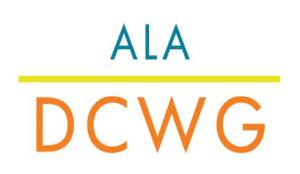 The American Library Association’s Digital Content and Libraries Working Group (DCWG) has begun exploring an idea that could help publishers better understand the powerful impact that libraries can have for their authors and their bottom line.
The American Library Association’s Digital Content and Libraries Working Group (DCWG) has begun exploring an idea that could help publishers better understand the powerful impact that libraries can have for their authors and their bottom line.
Recent surveys, including LJ’s own Patron Profiles series, have indicated that the most frequent library visitors also tend to purchase far more books than the average U.S. consumer each year. Libraries could continue to play a key role in marketing new titles and new authors to these patrons at the local level. Yet as ebooks have grown in popularity, the licensing models developed by major publishers seem designed primarily out of concern that libraries will be a drain on ebook sales.
One problem is that the “buzz” generated by libraries can be difficult to quantify.
But, “what would happen if we had a program where one book a month was selected and promoted around the country by all sorts of libraries under attractive financial and licensing terms [from the publisher], and we get lots of people everywhere reading the same book for a month?” Gluejar founder and DCWG member Eric Hellman said during the Working Group on Digital Content and Libraries committee meeting at the ALA Midwinter 2013 conference last weekend. “What would happen to the market for that book?”
Presumably, participating libraries would buy extra copies, just as they regularly do for books that they choose to promote. And, when holds lists start to grow, some patrons will opt to buy the selected title, rather than wait. If such a program were conducted on a national scale with hundreds of participating library systems, it could send a clear message about the marketing clout of libraries.
DCWG member and Public Library Association (PLA) executive board member Vailey Oehlke said that she had recently floated this idea to PLA, where it was met with enthusiasm.
“Even beyond the market impact, there’s a discoverability piece to this—that people will be finding new authors and books in public libraries,” Vailey said.
The specifics have not been worked out, but the conversation during the DCWG meeting began shaping the contours of the idea. For example, a debate about the merits of seeking the aid of Oprah Winfrey’s Book Club led to the conclusion that outside endorsements or celebrity promotions would be counterproductive to the project’s primary goal—showcasing the power that libraries have to drive interest in a title.
“I think it’s important to demonstrate the library impact first, and then get involvement from the heavy hitters,” Hellman said.
Choosing relatively new titles that are several months removed from a publisher’s own marketing efforts would also help illustrate that libraries are behind any resurgence of sales.
“Rather than take a book that has just been published, you take a book that has maybe not gotten the attention it deserved, which makes it easier to say ‘this is why sales changed,’” said DCWG co-chair Bob Wolven.
And it is difficult to imagine publishers being reluctant to participate in this type of program. Even Simon & Schuster—the only remaining big six publisher that has not launched an ebook pilot program and does not offer any ebook licensing terms to libraries—agreed to sell the ebook edition of Jean Thompson’s The Year We Left Home to libraries in Iowa, after the title was selected as the winner of 2013’s All Iowa Reads award. Before agreeing to offer the title for sale, the publisher was primarily interested in “how many Iowans read the AIR selection, how many copies are sold, names of past AIR titles, circulation numbers,” according to the Iowa Center for the Book. In theory, having access to similar numbers for a national promotion could give libraries more leverage in future discussions with publishers.
DCWG will have additional time to develop this and other projects. Although the group was originally appointed last year and asked to serve from July 2012 through July 2013, during the meeting, ALA President Maureen Sullivan asked committee members if they could keep the group as intact as possible for at least another year.
“The ALA executive board feels very strongly that this group needs to continue,” she said.


